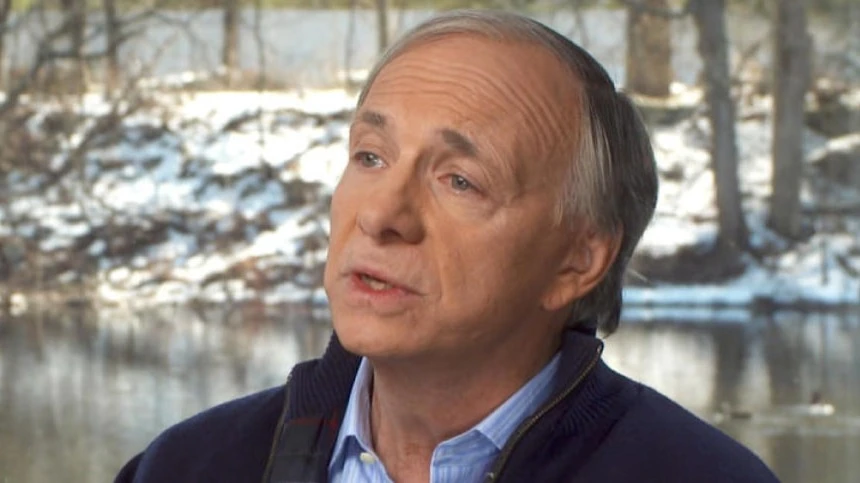Ray Dalio: How does the US resemble the USSR before its collapse and what risks should investors watch out for?
According to the billionaire, the U.S. is in the fifth and penultimate stage of the historical cycle, which precedes a major conflict like a revolution or civil war

America is close to an internal conflict that could escalate into a civil war. This is the scenario described by Ray Dalio, founder of hedge fund Bridgewater Associates and one of the world's most influential investors. What signals does he think investors should pay attention to in order to understand what lies ahead, and what advice does he give?
How does the US resemble the USSR of the 1980s?
In his book Principles for Dealing with the Changing World Order, which came out in 2021, Dalio described how countries go through a pattern-repeating historical cycles of six stages-from building a new system to prosperity and then to internal collapse. "Against the backdrop of the national debt problems and the suppression of riots in Los Angeles involving the National Guard at the behest of President Trump, I thought this was a good time to remind you of this cycle," Dalio wrote on Social Media X on June 9.
According to his assessment, the United States is at the fifth stage of such a cycle. As Dalio writes, the USSR was at the same stage in the late 1980s - and after the failure of the attempt to make radical changes within the current system (perestroika), the country collapsed;
"Stage Five is a fork in the road: one path leads to civil war/revolution and the other to peaceful and, ideally, prosperous coexistence. Obviously, the second path is preferable, but also much more difficult to realize," Dalio writes. This requires an appropriate leader - a "strong peacemaker" who can unite the country, cooperate with the opposition and create a fair and effectively working order - but there are few such examples in history;
The sixth stage is the most painful: the state is left without money and usually faces conflict in the form of a revolution or civil war, which historically have almost always been violent, destroying the old order and replacing it with a new one, the investor writes. He cites the revolution and civil war of 1917 in Russia, which led to the establishment of a communist order, as a classic example.
Dangerous symptoms to watch out for
Dalio is convinced that civil wars are "inevitable". Therefore, he advises to be alert and watch for signs that indicate that conflict is approaching. These are the signs he describes:
- the government is running a budget deficit and debt issuance exceeds demand. This is a classic sign of being in stage five and an early indicator of losing the ability to borrow and spend (which is one of the triggers for moving to stage six), Dalio notes;
- the level of bureaucracy is increasing, making it difficult to make reasonable and necessary decisions;
- on a wave of rising public anger, populists come to power. "Watch populism and polarization as indicators," Dalio writes. - The more populism and polarization a country has, the deeper it is into stage five and the closer it is to civil war or revolution."
- the class struggle intensifies, the demonization of certain groups and the search for scapegoats, who are massively perceived as the source of all problems and seek to isolate them. Such demonization, according to Dalio, often involves ethnic, racial or socio-economic groups, such as wealthy capitalists who are perceived as profiteers at the expense of the poor.
- Trust in the media is broken, distortion of information and propaganda causes people to stop realizing what is actually true.
What happens next
According to Dalio's observations, major internal conflicts and sometimes civil wars are usually triggered by a mixture of toxic factors - poor financial conditions of the country and population (e.g., debt), large gaps in income and values within society, and a large economic shock (e.g., bubble burst, pandemic, natural disasters, wars).
"When a government runs out of financial resources, there is a collapse. But before that, a fierce struggle for money and power begins," he writes;
The Dalio Principle
Dalio's advice ("principle") in this case is: if in doubt, leave while you still have the chance. "History shows that when things fall apart, the 'doors' for those who want to leave are often slammed shut. The same goes for investments and money, because in such times countries impose currency controls and other restrictions," he warns.
